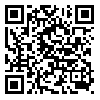Volume 28 - Supplementary
IBJ 2024, 28 - Supplementary: 251-251 |
Back to browse issues page
Download citation:
BibTeX | RIS | EndNote | Medlars | ProCite | Reference Manager | RefWorks
Send citation to:



BibTeX | RIS | EndNote | Medlars | ProCite | Reference Manager | RefWorks
Send citation to:
Bazrmanesh S M, Valizadeh Laktarashi H, Sharafi S, Naseri Z, Mousaei F M. Design and Evaluation of a Mobile-Based Application for Self-Care in Patients with Diabetic Retinopathy. IBJ 2024; 28 :251-251
URL: http://ibj.pasteur.ac.ir/article-1-4673-en.html
URL: http://ibj.pasteur.ac.ir/article-1-4673-en.html
Seyede Maryam Bazrmanesh 
 , Hossein Valizadeh Laktarashi
, Hossein Valizadeh Laktarashi 
 , Sadegh Sharafi
, Sadegh Sharafi 
 , Zainab Naseri
, Zainab Naseri 
 , Farshid Mohammad Mousaei *
, Farshid Mohammad Mousaei * 


 , Hossein Valizadeh Laktarashi
, Hossein Valizadeh Laktarashi 
 , Sadegh Sharafi
, Sadegh Sharafi 
 , Zainab Naseri
, Zainab Naseri 
 , Farshid Mohammad Mousaei *
, Farshid Mohammad Mousaei * 

Abstract:
Introduction: Diabetic retinopathy, a complication of diabetes, is one of the leading causes of blindness among adults. Effective management and self-care are crucial in mitigating its progression. With the rise of mobile health solutions, a mobile-based application tailored for self-care in diabetic retinopathy patients offers a promising approach to enhance patient engagement, monitor health conditions, and improve outcomes. The primary goal of this article in designing a mobile application for diabetic retinopathy self-care is to provide an intuitive, user-friendly platform that addresses the specific needs of patients, features, and evaluation of such an application.
Methods and Materials: This applied study, conducted in 2024, was divided into two main stages: design and evaluation. The functional requirements were initially identified, and then the application's conceptual model was developed using the Visual Paradigm program. The application was subsequently developed utilizing Java programming. In the evaluation phase, the Mobile Application Usability Questionnaire was employed to gather feedback from patients with diabetic retinopathy regarding the application's usability.
Results: The application offers several key features, including reminders, alerts, educational content, valuable links, data storage, a specialist finder, and notifications for diabetic retinopathy events. Usability testing involved 25 users with diabetic retinopathy. The participants generally expressed satisfaction with the application, rating it an average of 5.56 out of 7.4 (± 1.11).
Conclusion and Discussion: The findings of this study indicate that the mobile application developed has the potential to help individuals with diabetic retinopathy manage their condition more effectively by addressing user needs and providing essential services. However, it is recommended that researchers conduct more research in developing applications related to the self-care of eye diseases.

Methods and Materials: This applied study, conducted in 2024, was divided into two main stages: design and evaluation. The functional requirements were initially identified, and then the application's conceptual model was developed using the Visual Paradigm program. The application was subsequently developed utilizing Java programming. In the evaluation phase, the Mobile Application Usability Questionnaire was employed to gather feedback from patients with diabetic retinopathy regarding the application's usability.
Results: The application offers several key features, including reminders, alerts, educational content, valuable links, data storage, a specialist finder, and notifications for diabetic retinopathy events. Usability testing involved 25 users with diabetic retinopathy. The participants generally expressed satisfaction with the application, rating it an average of 5.56 out of 7.4 (± 1.11).
Conclusion and Discussion: The findings of this study indicate that the mobile application developed has the potential to help individuals with diabetic retinopathy manage their condition more effectively by addressing user needs and providing essential services. However, it is recommended that researchers conduct more research in developing applications related to the self-care of eye diseases.

Type of Study: Full Length/Original Article |
Subject:
Related Fields
| Rights and permissions | |
 |
This work is licensed under a Creative Commons Attribution-NonCommercial 4.0 International License. |





.png)
